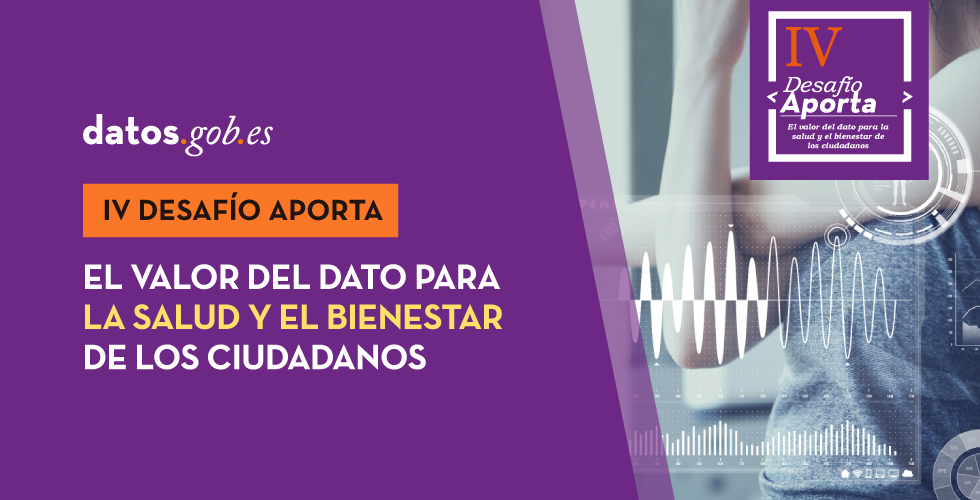
The deadline for receiving applications to participate in the IV Aporta Challenge closed on 15 February. In total, 38 valid proposals were received in due time and form, all of high quality, whose aim is to promote improvements in the health and well-being of citizens through the reuse of data offered by public administrations for their reuse.
Disruptive technologies, key to extracting maximum value from data
According to the competition rules, in this first phase, participants had to present ideas that identified new opportunities to capture, analyse and use data intelligence in the development of solutions of all kinds: studies, mobile applications, services or websites.
All the ideas seek to address various challenges related to health and wellbeing, many of which have a direct impact on our healthcare system, such as improving the efficiency of services, optimising resources or boosting transparency. Some of the areas addressed by participants include pressure on the health system, diagnosis of diseases, mental health, healthy lifestyles, air quality and the impact of climate change.
Many of the participants have chosen to use disruptive technologies to address these challenges. Among the proposals, we find solutions that harness the power of algorithms to cross-reference data and determine healthy habits or predictive models that allow us to know the evolution of diseases or the situation of the health system. Some even use gamification techniques. There are also a large number of solutions aimed at bringing useful information to citizens, through maps or visualisations.
Likewise, the specific groups at which the solutions are aimed are diverse: we find tools aimed at improving the quality of life of people with disabilities, the elderly, children, individuals who live alone or who need home care, etc.
Proposals from all over Spain and with a greater presence of women
Teams and individuals from all over Spain have been encouraged to participate in the Challenge. We have representatives from 13 Autonomous Communities: Madrid, Catalonia, the Basque Country, Andalusia, Valencia, the Canary Islands, Galicia, Aragon, Extremadura, Castile and Leon, Castile-La Mancha, La Rioja and Asturias.
25% of the proposals were submitted by individuals and 75% by multidisciplinary teams made up of various members. The same distribution is found between individuals (75%) and legal entities (25%). In the latter category, we find teams from universities, organisations linked to the Public Administration and different companies.
It is worth noting that in this edition the number of women participants has increased, demonstrating the progress of our society in the field of equality. Two editions ago, 38% of the proposals were submitted by women or by teams with women members. Now that number has risen to 47.5%. While this is a significant improvement, there is still work to be done in promoting STEM subjects among women and girls in our country.
Jury deliberation begins
Once the proposals have been accepted, it is time for the jury's assessment, made up of experts in the field of innovation, data and health. The assessment will be based on a series of criteria detailed in the rules, such as the overall quality and clarity of the proposed idea, the data sources used or the expected impact of the proposed idea on improving the health and well-being of citizens.
The 10 proposals with the best evaluation will move on to phase II, and will have a minimum of two months to develop the prototype resulting from their idea. The proposals will be presented to the same jury, which will score each project individually. The three prototypes with the highest scores will be the winners and will receive a prize of 5,000, 4,000 and 3,000 euros, respectively.
Good luck to all participants!